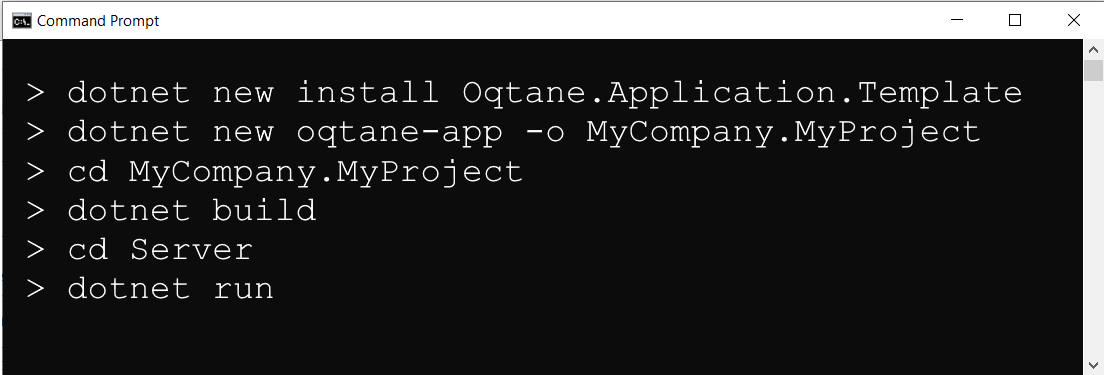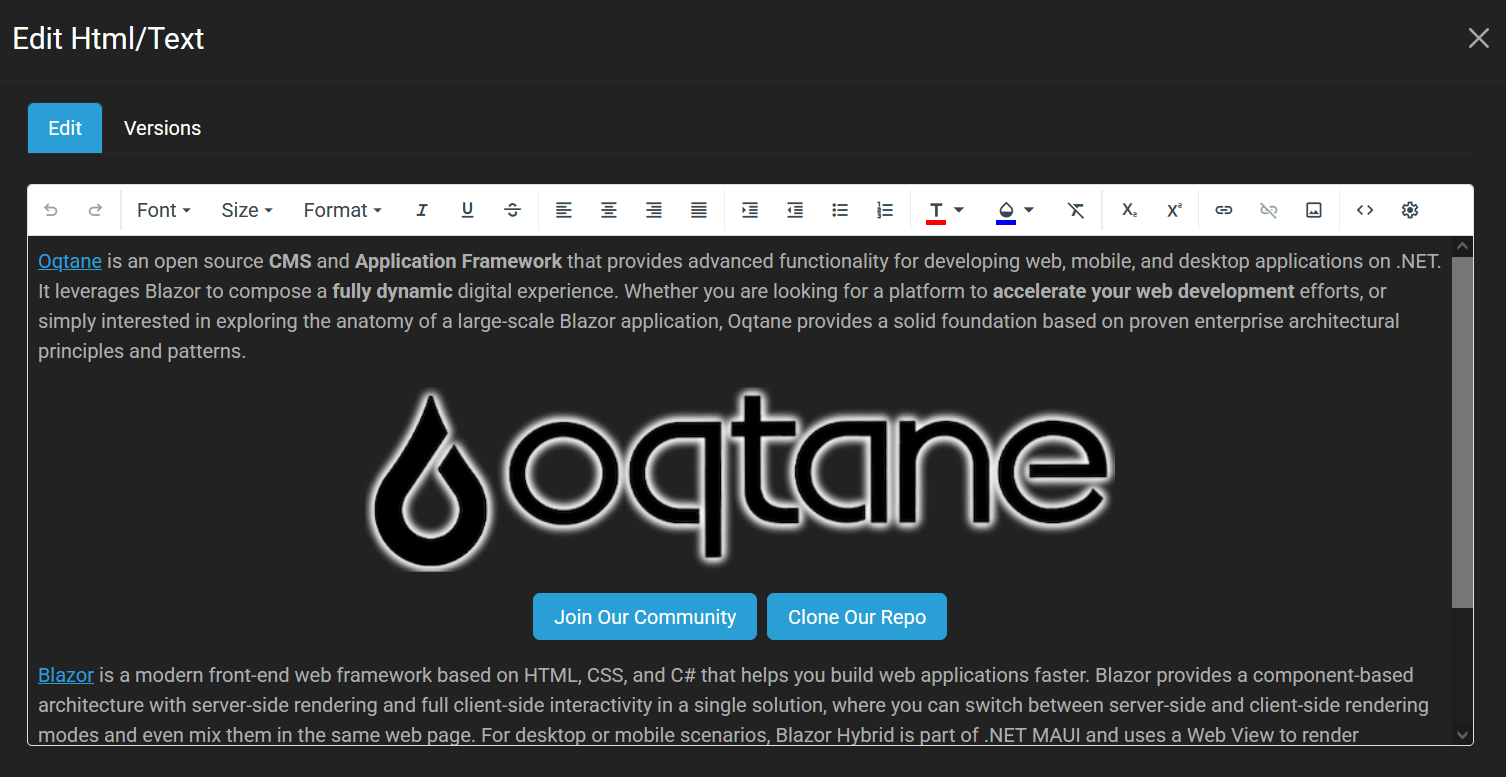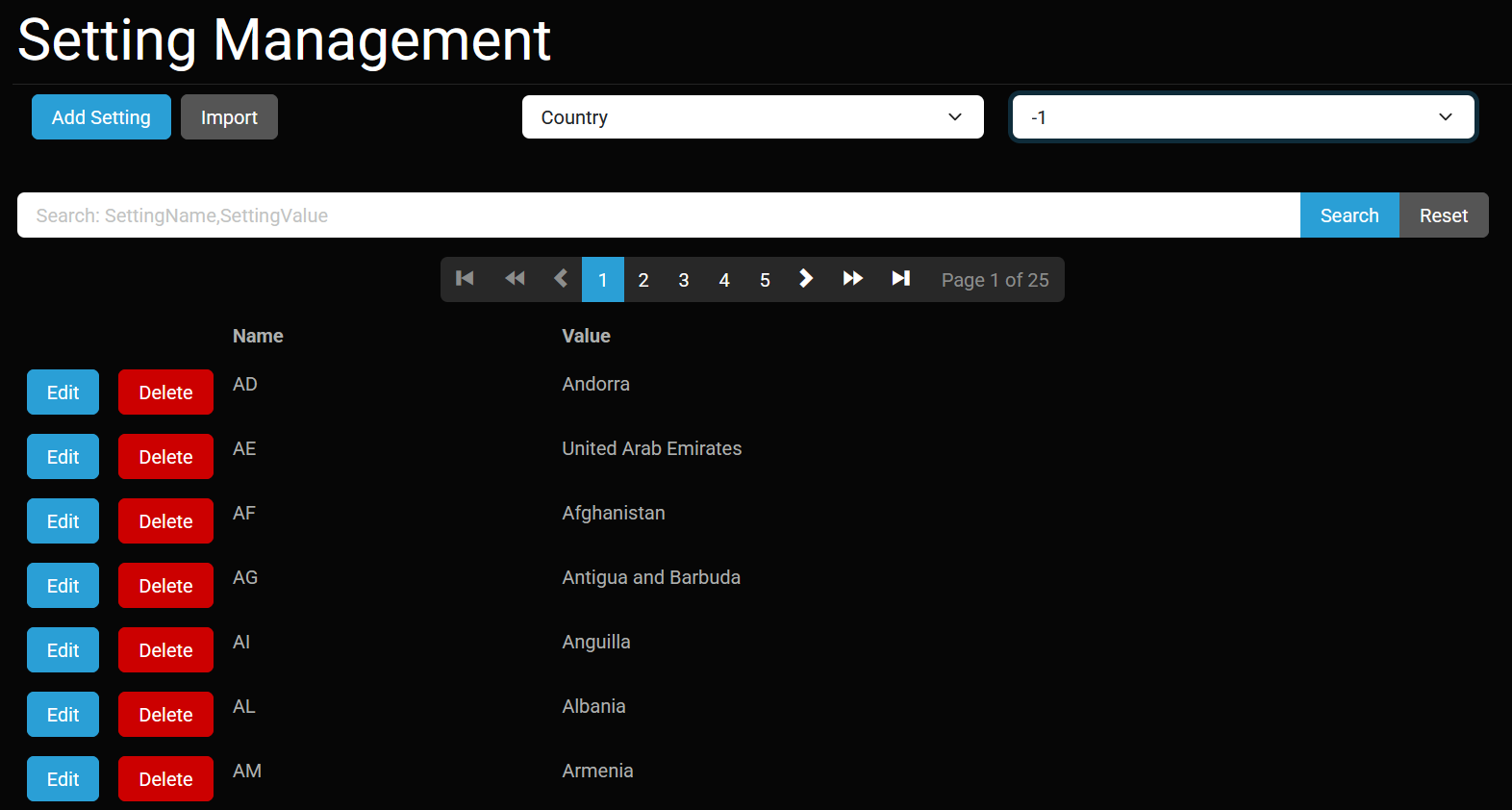The 6.2 release is a major release which includes developer productivity, usability, security and performance improvements.
This release is dedicated to my son, Grayson, who passed away unexpectedly on May 8, 2025.
Oqtane Application Template
Oqtane is a modular application framework, therefore it has always provided the ability for developers to create custom modules and themes which can be developed and deployed independently from the framework itself... creating an "extensible monolith". Unfortunately, the standard Microsoft developer tools do not provide great support for this development approach which sometimes causes friction for developers who are new to developing applications with Oqtane. To solve this problem, a new Oqtane Application Template has been included in the 6.2 release which greatly improves the developer experience. The template creates an Oqtane application which can contain multiple custom modules and themes. The Oqtane application can consume standard Nuget packages, provides a standard debugging experience (including support for Hot Reload), and can even be deployed using a standard publishing workflow. We believe this is a true game changer in terms of allowing .NET developers to fully experience the vast capabilities of Oqtane. If you are interested in learning more, we encourage you to watch the recording from the recent Oqtane Community Standup.

Radzen Text Editor
The default text editor included in the framework since version 1.0 was based on a popular JavaScript component named QuillJS. QuillJS is a basic text editor that is most appropriate for non-technical users who need some basic text editing functionality. However for more technical users, there is often a need for a more full featured HTML text editor. In Oqtane 5.2 an abstraction was added to allow developers to create custom text editors. Over the past few months research was conducted into the alternatives and it was determined that most of the popular text editor components such as CK Editor, TinyMCE, etc... have all adopted commercial licensing models which make them difficult to distribute in open source projects. An exception is the Radzen text editor that is part of the Radzen Blazor UI component library, which is available under an MIT open source license. Ben Zhong (@zyhfish) recently created a new text editor for Oqtane using Radzen and it offers so much benefit to users that we decided to make it the default text editor in the 6.2 release.

Setting Management
Oqtane was architected with extensibility in mind, and a perfect example of this is the Setting API. The Setting API utilizes the concept of an "entity" which enables it to manage settings for any data domain. This includes data domains which are part of the Oqtane framework such as Site, Page, Module, or User... but it also includes custom domains which are defined by users or developers. Traditionally, setting information was only accessible via the API however in Oqtane 6.2 a new Setting Management feature has been added to the Admin Dashboard. Setting Management allows a host user to interactively view and manage settings for any type of entity. It also provides the ability to add settings and even import settings as a bulk operation, which is especially useful if you have master data such as countries, currencies, etc... which you would like to include in your installation and use in your custom modules.

Open Source
To date, the open source project has recorded over 3136 pull requests from 58 contributors and has published 58 official releases, which ranks it among the most active open source projects within the .NET Foundation. The Oqtane framework continues to evolve at a rapid pace to meet the needs of the .NET community. The 6.2 release is available for download on GitHub and is running in production at https://www.oqtane.org, https://www.blazorcms.net, and https://www.blazorkit.net.
Great release! As the original creator of the Quill based Text Editor I am happy to see the new, and greatly improved, version. I am looking forward to trying out the new developer tools. Thank you for constantly improving the developer experience. And finally, I am so very sorry for your loss.